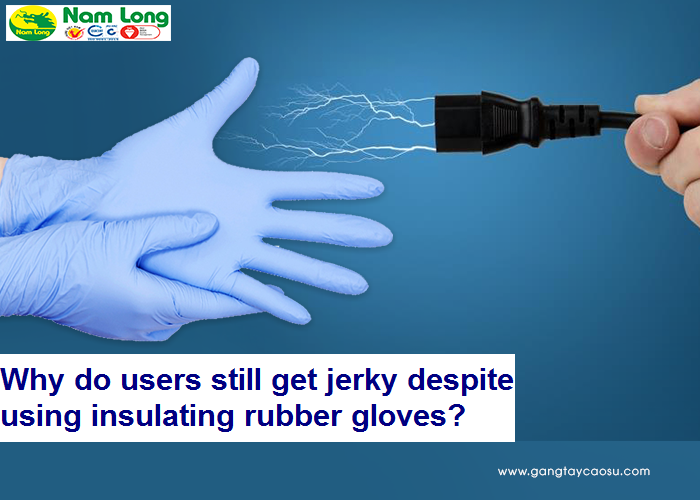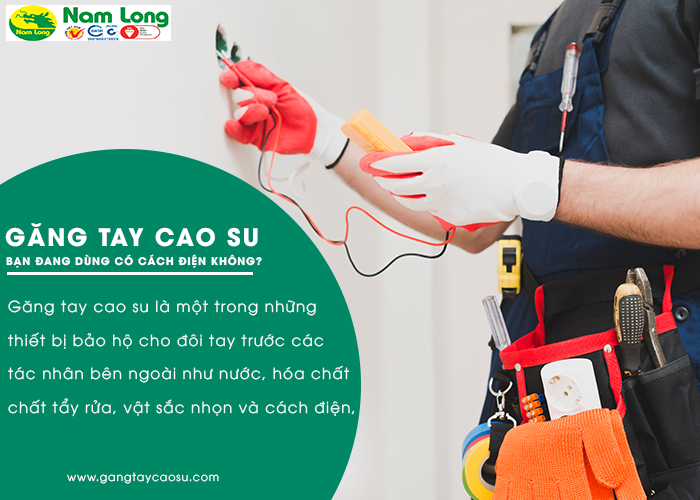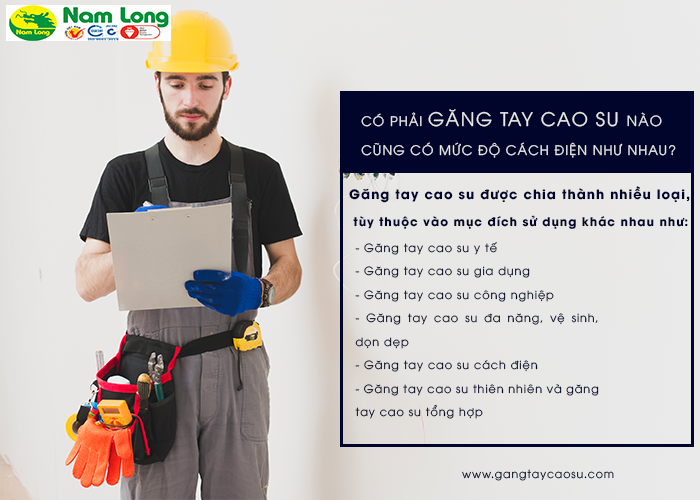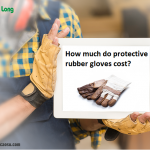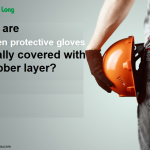Many people have heard about insulating rubber gloves but they don’t know that whether the normal rubber gloves are insulated or not. And if yes, why do some people still get jerky?
1/ Do any kinds of rubber gloves have the same insulated level?
Rubber gloves are one of the protective equipment which prevent our hands from the external elements such as water, chemical substances, detergents, sharp objects, electricity, and heat. Rubber gloves are differentiated into several types with distinct purposes such as:
- Medical latex gloves
- Household rubber gloves
- Industrial rubber gloves
- Versatile rubber gloves for sanitary or cleaning purposes.
- Insulating rubber gloves
- Natural and synthetic gloves (depend on materials)
Thanks to its insulating properties, insulating rubber gloves were born, meeting the demand for wide use in many fields. However, to provide high insulation efficiency, insulating rubber gloves must be combined with dielectric characteristics and physical durability, meeting the standards depending on the maximum voltage index. At the same time, this kind of gloves will be rigorously tested by electrical engineering agencies to meet the standards set out. Because of this, insulating rubber gloves will be classified into the level of voltage protection.
Thus, although the nature of rubber is insulated. However, not all of them have the same level of insulation. For household rubber gloves that are insulated but at a low level compared to dedicated insulating gloves. At the same time, each kind of specialized insulating rubber gloves will have different voltage index which are suitable for several working environments.
2/ Why do users still get jerky despite using insulating rubber gloves?
Insulating rubber gloves protect users when getting exposed to electricity. However, there will be some jerky cases like:
Punctured
This is the most common case. This happens among the specialized, household and industrial rubber gloves in general. Rubber gloves have good puncture resistance, especially the pure rubber; however, under the impact of sharp objects, they will be punctured and torn. It is worth to mention that those small tears are probably difficult to recognize because the rubber gloves will be shrunken to cover the hole. Therefore, if you accidentally touch the power source, it may cause a shock.
Attached with conductors
If the rubber gloves are attached with electrical conductors, it can cause an electric shock. The charge will pass through the conductors and then your hands. Conductive substances are identified as water, liquid, electric wires, etc. Therefore, when using any kind of rubber gloves, you should check carefully if there are any punctures and conductors or not.
Too thin
Rubber gloves are divided into 2 types which are thick (used in industry, household, etc.) and thin (used in medical, tattoo, etc.). This also determines the insulation capacity of each type. When the electric power is stronger than the thinness of the gloves, you will get an electric shock.
Synthetic household rubber gloves
The pure-natural rubber gloves usually have the better insulation capacity in comparison with the synthetic ones. Therefore, when using the natural origin gloves in household and industry, you will be much more secured.
Specialized insulating rubber gloves will be designed and manufactured to suit each job with an equivalent voltage index and be tested for safety before reaching consumers. For ordinary rubber gloves like household, medical, industrial types, they will be insulated at a moderate level. And of course, both types are insulated in non-conductor environments, and the gloves are not damaged. Therefore, when using insulating rubber gloves or ordinary rubber gloves, consumers need to understand this problem to avoid unintended consequences due to lack of understanding



